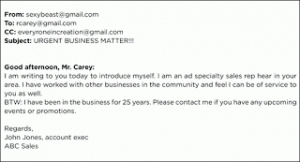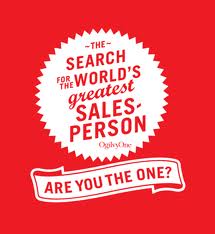Вы недавно заполнили анкету, претендуя на работу вашей мечты, и сейчас находитесь в состоянии нервного ожидания и разноречивых предчувствий о предстоящем собеседовании? Или, возможно, Вы уже получили долгожданное подтверждение даты и времени встречи с вашим будущим нанимателем? Тогда продолжайте читать эту статью – она для Вас.
Как сказал великий Бенджамин Франклин, провалишь подготовку – подготовишься к провалу. Поэтому мой главный совет: нужна предварительная качественная подготовка, которая должна стартовать не за неделю или пару дней до Вашего собеседования, а в момент, когда Вы определились со своим выбором.
И дабы потом не пожалеть об этом выборе, начните с глубокого всестороннего изучения компании, в которой Вы собираетесь служить, а именно: ее финансовой мощи (или немощи), ее административного штата (всегда дотошного и въедливого), ее конкурентов и деловых сделок (успешных или провальных). Отправной точкой могут служить независимые отчеты, выполненные в Mintel и Euromonitor.
Эти отчеты, зачастую, содержат подробные списки конкурентов и оценку их рыночного потенциала. Помните: каждая индустрия (в бизнесе, промышленности, производстве) имеет свой четко очерченный круг авторитетных отраслевых изданий, которые и следует читать в первую очередь. Помимо этого, на данной стадии сбора информации, полезным источником может служить социальная сеть для поиска и установления деловых контактов LinkedIn: здесь Вы можете разыскать действующих и бывших работников компании, возможно договориться с ними о краткой, информативной телефонной беседе.
Настоятельно рекомендую отслеживать новости компании и отзывы о ней в масс-медиа. И поможет Вам в этом система Twitter, благодаря которой Вы будете в курсе всех деловых новостей, достоверных фактов и слухов относительно «предмета» Вашего интереса.
Второй совет: постарайтесь проникнуться сутью и содержанием того дела, которым Вы собираетесь заниматься, будучи принятым на работу. При этом Вы наверняка натолкнетесь на проблемы, факты и данные, которые не в состоянии самостоятельно осмыслить или прояснить их смысл до конца. Систематизируйте их (обязательно в письменном виде), чтобы затем, «сымпровизировав», трансформировать их в вопросы для обсуждения во время собеседования.
Это наиболее результативный и наименее затратный путь, позволяющий решить триединую задачу:
- подготовить компетентные вопросы к интервью
- продемонстрировать свою деловую осведомленность и заинтересованность
- восполнить пробелы в своих знаниях о компании и сути вашей будущей работе.
Помните: интервьюеры предпочитают кандидатов, всесторонне осведомленных (вплоть до самых мелких деталей) об их компании, даже тем, кто может похвастать документально подтвержденными достижениями в прошлом.
Третий совет: попрактикуйтесь в роли интервьюируемого, выбрав в качестве интервьюера квалифицированного консультанта, друга, члена семьи или даже … зеркало, поскольку язык тела иногда говорит о человеке гораздо больше, чем он может предполагать. При этом попросите Вашего визави быть откровенным при оценке содержания и формы Ваших ответов и жестикуляции.
Лапидарность и лаконичность ответов-вопросов должны сочетаться с их содержательностью и компетентностью, ибо пустословие и «растекание мыслью по древу» быстро утомляют обе стороны, участвующие в собеседовании.
Примерные типы вопросов для тренинга: «Укажите на наиболее чувствительный просчет в вашем послужном списке» или «Назовите слабые стороны ваших деловых качеств» или «Если бы вы говорили с вашим прежним боссом, в какой слабости вы бы признались ему сейчас» и т.д. и т.п. В интернете существуют мириады подобных вопросов, и нет ни одного повода отказать себе потренироваться отвечать хотя бы на некоторые из них.
Итак, сделайте только три шага: 1) сбор информации, 2) анализ и систематизация, 3) тренинг, и успех тоже шагнет к Вам навстречу.
The original article can be accessed here: http://thebusinesscourier.co.uk/2013/05/10/sovety-professionala-uspeshnoe-sobesedovanie-v-3-shaga/






Follow Us!